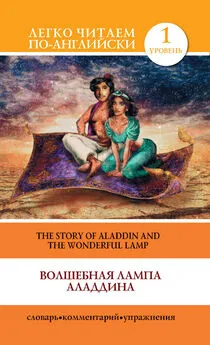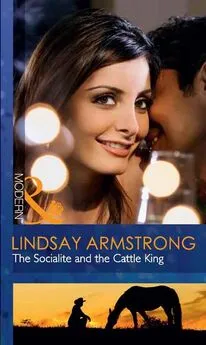Jean Plaidy - To Hold the Crown: The Story of King Henry VII and Elizabeth of York
- Название:To Hold the Crown: The Story of King Henry VII and Elizabeth of York
- Автор:
- Жанр:
- Издательство:неизвестно
- Год:неизвестен
- ISBN:нет данных
- Рейтинг:
- Избранное:Добавить в избранное
-
Отзывы:
-
Ваша оценка:
Jean Plaidy - To Hold the Crown: The Story of King Henry VII and Elizabeth of York краткое содержание
To Hold the Crown: The Story of King Henry VII and Elizabeth of York - читать онлайн бесплатно полную версию (весь текст целиком)
Интервал:
Закладка:
“Your noble grandfather was in Flanders some months before the birth of Warbeck. And I can tell you this, my young lord, where Edward was there might well spring up little bastards. . . . He was a great man. Great in all ways . . . as you will be, my young bantam lord. Oh yes, I see another such as great Edward strutting there.”
It was disrespectful talk. His father would not agree with it, but Henry liked it. It was pleasant to think he was going to be like his maternal grandfather. Skelton remembered the late King when he was a man of forty and said his years had sat lightly on him. “Even the men cheered Edward,” Skelton went on. “It seems they liked him to admire their wives . . . and as his admiration was of a practical nature if you know what I mean . . .” He nudged young Henry who laughed with delight. “Then you do know what I mean!”
Skelton was a wonderful tutor, for he was a clever poet, a man of education who had studied the classics and French literature; he had translated Cicero’s Letters. That he was ribald and bawdy was accepted because of his achievements and Henry would not have changed him for anyone else. He attended to all aspects of Henry’s education and gave him not only an appreciation of the arts but of women. Sometimes he talked to the boy as though he were a man. Henry liked it. He could never bear anyone to refer to his youth.
At that time Henry was destined for the Church.
He disliked the idea but Skelton laughed at him. “A very good time can be had in the Church, my lord. Particularly for one of your rank. I swear you’ll be Archbishop of Canterbury before you are very old. Think of the power you’ll have.”
“I do not wish to go into the Church.” Henry’s eyes were narrowed. But at the same time he looked up at the sky to placate an angry god who might be listening, for what he feared more than most things was heavenly vengeance. “At least . . .” he added. “At least . . . if I can serve my country in any other way. I do not think I am suited to the Church.”
“Nor are you, my lord, but wise men fit the post to themselves not themselves to the post. And think of our illustrious Pope Alexander the Sixth . . . otherwise known to the world as Rodrigo Borgia. He manages to live a very full and varied life . . . Church or not. Don’t tell me my lord that you as an Archbishop of Canterbury cannot be as clever as the Pope of Rome.”
That was how Skelton talked—laughing, irreverent, full of anecdotes. A very exciting person to be with.
Skelton was glad he was not Arthur’s tutor. “There would be no fun with our Prince of Wales,” he said. “He is a very serious young gentleman. Not like you, my lord of York . . . ah, my lord of York, my Prince Henry, my willing pupil . . . there is a man . . . a man who was born to be king.”
Skelton should never leave him if he could help it.
Henry thought a great deal about his father and he came to the conclusion that he did not really enjoy being a king, which was strange because to Henry that seemed the ultimate achievement—that was happiness and contentment.
The King acted very strangely now and then. Henry remembered something, which had happened not very long ago, which gave him a certain insight into his father’s nature.
It had happened at the arena. The King kept a large menagerie and he was very fond of sports in which the animals took part. Young Henry believed that his father was always trying to make the people like him. He showed them how lenient he was to his enemies; they were always present at tournaments and shows in the arena. But he always looked so stern and he rarely smiled. If only he would smile, speak to some of them in a friendly way, he would have been liked so much more than he was because he forgave Lambert Simnel and Perkin Warbeck too . . . for a very long time. If I were the King . . . Henry thought. It was a recurring observation.
But on this day in the arena the King’s lion was brought out. He was a fierce and splendid animal and when the dogs were set on him he was always the victor. His name was Rex, which meant he was the King.
On that day four mastiffs were set against him. Never had the dogs beaten Rex, but they did that day. Young Henry loved the dogs and they put up a magnificent fight against old Rex. They were battered and wounded . . . but the dogs won in the end and it was Rex who lay dying in the center of the arena.
Young Henry’s impulse had been to shout with excitement but he had caught the stern looks of his father, and his mother, who sat beside the King, was watching Henry and her look begged him to restrain his high spirits. Then he realized that the King saw something significant in this episode. The King had been set on and killed. Poor Rex was king of the animals no more.
It was a symbol. These mere dogs had set on the king of the beasts and killed him. Rex was the King. Henry saw it clearly when John Skelton pointed it out to him.
The King had left the arena in silence. People had thought it was because he had loved his lion. But it was more than that. Before sunset those four victorious mastiffs were brought out from the kennels and hanged on gibbets in the arena. Their bodies dangled there for two days so that all might see them.
It was a symbol and a warning to all would-be traitors. The mastiffs had killed the king of the beasts. Therefore they were traitors.
Henry was a little bewildered. He talked over it with Skelton.
“But it wasn’t the fault of the dogs. They were put in the arena to fight Rex,” he pointed out.
Skelton said: “One does not have to be at fault to be hanged as a traitor.”
“Then how can they help it?”
“They cannot. Young Warwick couldn’t help it, could he? He was born to what he was . . . so he was a potential traitor if another should take over the throne.”
“Warwick wanted to take my father’s place,” said Henry.
Skelton bowed low. “Ah, the noble Tudors. Bless me, I had forgot. They have a right to the throne. The rank of Lancaster! Of course. Of course. York must stand aside for the Tudors.”
Henry laughed as he often did at Skelton. But he would not repeat quite a lot of what Skelton said because he knew that if he did he would his lose his tutor and who knew—his tutor might lose his head. But he did know, through Skelton’s innuendos, that his father was very much afraid that someone would rise up and take the throne from him.
There was another occasion when the King had one of his best falcons killed. This amazed young Henry. He loved his own falcons and he could not understand why the very best one of all should be destroyed.
The falcon had matched itself with an eagle, he was told. And it had bettered the eagle. All knew that the eagle was the king of the birds as the lion was the king of the beasts.
The King had said: “It is not meet for any subject to offer such wrong to his lord and superior.”
Henry was bewildered. He came to Skelton for explanation.
“It’s a parable, my lord. Your noble father is fond of parables. That is because he sees himself as our god. He wishes it to be remembered that he will brook no traitors. Any who threaten his throne will go the way of the mastiffs and the falcon. Poor innocent creatures who must be so sadly used in order that the King’s human subjects be provided with a lesson.”
“I would never destroy my best falcon,” said Henry.
“Let us hope, dear lord, that if you should attain the throne you would never find it necessary to teach us all such a lesson.”
“I should just wait until I had real traitors and then cut off their heads.”
“Ah, if my Prince ever came to the throne then the heads would begin to roll, would they?”
“Traitors’ heads would.”
“And traitors would be any who opposed my lord’s will. Ah, but such talk is treason . . . to our lord the King and to the Prince of Wales. I must take care or I shall find myself hanging beside the mastiffs.”
“I would prevent that, good Skelton,” said Henry.
Skelton laughed and coming close to Henry whispered in his ear: “Ah, but my lord Prince, you are not the King . . . yet.”
“You say yet . . . good Skelton as though . . . as though . . .”
Skelton laughed. “Life is full of chances,” he said. “You are at the moment second in line. . . .”
“Skelton, have you been seeing the soothsayers and wise men?”
Skelton shook his head. “The wisdom comes from inside this head, my lord. And it tells me that . . . there is a chance . . . Of course when our Prince of Wales has sons . . . then, my lord of York, your chances fade with the birth of each one.”
“Arthur is not very strong. Do you think he will be able to do that which is necessary to get children.”
Skelton looked slyly at his pupil. “There is only one, my lord, who can answer that question.”
“Who? Where is he? Find him . . .”
“I do not have to. He is here with us now.”
“Whisper his name.”
Skelton put his lips to the ear of the Prince and said: “Father Time.”
Henry was irritated and slunk away in a temper, cross even with Skelton.
Now he looked from the windows—a dull and misty October day. He liked the spring—the lovely season when the world refreshed from the winter started to burgeon again. The spring, the hot summer . . . journeys into the country to be cheered by the people, to let them see what a fine son their King had got for them. “Alas,” he imagined them saying. “He should have been the firstborn.”
He ran an impatient finger along the ledge of the window seat. It was decorated with roses. Tudor roses they called them. It was roses everywhere. Red roses the most prominent of course because the red rose of Lancaster was slightly superior to the white rose of York. They were entwined now; and he liked to remember the white rose. His glorious grandfather had proudly worn it. He was the one who impressed Henry—not the obscure Tudors. In the gardens some of the roses lingered on as though loath to go. In the summer they made a colorful display. He liked to run across the grass past the statues to the end of the garden where that building, which was called The Houses of Pleasure, was situated.
There it was possible to play games at which he was beginning to excel. He had real mastery at tennis and he loved the game. Arthur would never play with him. But he played with others and he almost invariably won. Sometimes he wondered whether they allowed him to because he could be rather angry if they didn’t. He never said so but he tried not to play with the winner again. Skelton noticed—Skelton noticed everything.
“It is all very well to hate to be beaten. Natural, right and proper but to show you hate it . . . now that is quite another matter.”
There were times when he wished Skelton were not so perceptive. Sometimes they played chess together.
“Now, my lord Duke,” Skelton had once said, “how is your mood this day? May I beat you? Or would your temper not stand it?”
“Skelton you rogue,” he said, “the better man will win.”
“Oh that is how you wish it, is it? Very well. I just wished to know whether I was to consider my lord Duke’s skill or his temper.”
He saw too much, knew too much. There were times when he felt he would have rid himself of the man if he could. But he knew he never would. Skelton was too clever, too entertaining.
He would like to play a game of tennis and he was in no mood to be beaten, so he selected one of his squires who had not the skill to beat him even if he did not know it was impolitic to do so.
“Come,” he said. “I would to the tennis court. We can get a game before it is dark.”
Читать дальшеИнтервал:
Закладка:










